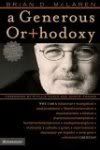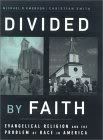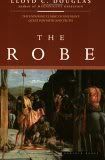 Sorry if I keep y'all guessing on how many chapters I'm going to do each week. I'm sort of making it up as I go along, trying to hit some sort of balance between too much and too little. Also, a couple of people have commented to me that this can be a little overwhelming/intimidating, and I'd love any feedback on how to make it less so. I'll try a more minimalist approach in this post, and see what happens...
Sorry if I keep y'all guessing on how many chapters I'm going to do each week. I'm sort of making it up as I go along, trying to hit some sort of balance between too much and too little. Also, a couple of people have commented to me that this can be a little overwhelming/intimidating, and I'd love any feedback on how to make it less so. I'll try a more minimalist approach in this post, and see what happens...
I pretty well agreed with much of what was said in chapter 6, Why I am an evangelical. I particularly appreciated the paragraph on p. 119 where he says
Yes, I know that when evangelicals start acting like Evangelicals, they can become less loving and more judgmental, less involved and more isolated, less compassionate and more critical, less passionate and more anxious, less generous and more controlling. But that shift is a betrayal of evangelical faith, not a consequence of it. When evangelicals are being true to their identity, they do whatever it takes to express their love for God and God's love for their neighbors - however unconventional and innovative their methods might be.
What do y'all think of the distinctions he makes between evangelical and Evangelical? Do you see/feel the passion he describes? He mentions that Evangelicals have "painted themselves into a lot of corners - theologically, politically, socially." (p. 120) Do you agree? Do you see any way out? Or even a place to start?
I started chapter 7 immediately annoyed, simply because I am sort of predisposed to dislike all of these post-everything labels. I know the intention is, like he points out, to emphasize both the continuity and the discontinuity, but still. We're in a postmodern culture in a post-Christian society full of post-evangelicals and post-protestants watching debates between the post-liberals and post-fundamentalists, and... come on. But anyway.
He describes the two potential meanings of protestant as people protesting against something or people "pro-testifying". He acknowledges that each meaning has value, but adds that "some people have a taste for each, though probably not at the same meal." (p. 123) Personally, I think maybe we need to sit down to both at the same meal, as they seem to be able to work hand in hand. Actually, they may need to work hand in hand. If we are testifying for something, the logic almost requires that we are also protesting against something. The key seems to be remembering (I'll quote Rob Bell again here) that if it has flesh, it's not our enemy. So what we're against should never be our neighbor. Am I oversimplifying here?
I love that in the 13 pages of chapter 8 he tackles epistemology and hermeneutics. Holy cow. Those are unbelievably huge topics. He has a lot of really helpful general critiques of both the liberal and conservative sides, but I don't find him really offering much of an alternative. Again, what is he really saying? I have to laugh at sentences like, "I think conservatives and liberals were both right and wrong and were each in their own way trying to do what they felt was right." Umm, okay. Of course, he's right, but what does he offer as a third alternative? I can say I'm both liberal and conservative and do what I 'feel' is right, but when you get down to it, it's sort of empty unless I'm working out of a coherent epistemology/hermeneutic. What do y'all think?
Okay, I'm going to stop there. See you in the comments section!










13 comments:
I was thinking about the intimidating/overwhelming factor and I think maybe it just has to do with the book being so jam-packed with deep stuff. I keep feeling like these topics are so hearty that I'd rather be sitting in person and sharing ideas. Typing everything out when my brain is gushing is tough. Perhaps we can choose a book that is a little lighter...any ideas?
I really hope we do another one. I have enjoyed this and it keeps me reading!
I haven't re-read chapter 8 yet so I'm going to comment only on chapters 6-7 for now.
I liked his comments on e vs. E-vangelicals and I pretty much agree. I'm not sure how much I like the way he represents it. I feel like everything so far is all about re-defining terms. He says he IS an evangelical...but only if we understand that his version of evangelical is not fundamentalist...or else he isn't an evangelical.... It's all kinda mixed up to me. I agree that there is a difference, but I feel like that difference should be used to improve and not to seperate. Does that make sense? Should we really allow there to be a distiction between "E" and "e"? Maybe there should. Maybe I'm really missing the point. But I find myself being critical of the church sometimes and it's very easy to say "Yes, I go to church and I'm a Christian...but I'm not like most of the Christians...so if you think Christianity is what you normally see then I'm not a Christian." Or on the flip side it's like saying "If you think Christianity is about all of the healthy constructive things you see...then Yes, I AM a Christian."
It's a good point...but I don't think it's a healthy place to stop. Either I am, or am not...and with whatever I choose comes consequences. Yes? No? Am I missing the point?
I also agree with Jasie on the annoying "post-" arguments. In 10 years is everything going to be "post-post-"? It all makes sense, but it's a word game. What are we going to do, just keep improving things and changing their names?
I do like how he brought out some of the "not so cool" sides of Protestantism. Being that I identify myself as a Protestant I guess I sort of unconsciously assume that I am part of the better developed segment. It's humbling to be reminded that wherever you go/do/decide you always have consequences.
I like what he says on pg. 140
Do we even know what we're for? So many of us are sure about what we're against, but in the process of being against so much, we've either forgotten what we're for or become "for" things that are not worth being for. What are we here for?
My friend once said (and I think many people have probably said this too) that people really don't care about all the things you're against...people want to see the things you support, the things you live out...those are the things that are actively changing the world. I've never been a big protestor in action...but I think I've at times been judgemental in my attitude and interactions with people.
To summarize...I've been fighting with the way that McLaren seems to just take all of our common terms and quasi-redefine them by tagging a "post" onto them or making them lower case words. Is he really changing all that much? Is he attempting to create a new way to identify ourselves? If so, is it really working?
I AM a Christian. I AM part of the church. I DO want to continue to improve things and continue to rework and redefine and restructure things to make them more and more in line with the core of the gospel message. In this book I'm seeing a lot that I agree with, and a lot that I think is interesting or insightful..but I'm still trying to figure out how this all comes together, how does it come a live? How does it interact with the Christianity that has been built up over the centuries?
These questions are all just blobbed into my brain right now, maybe they'll never be answered. I have also strayed quite a bit from the themes of the chapters. Ooops, sorry :-)
But I posted! And where are all of the other clubbers? Come one everyone! I want to hear people's thoughts!
With love!
April
I still want to comment on chapter 5 but I haven't found another 2 hour slot to do it! Is it okay if I do that this weekend before going on to Chapters 6-8? There was so much in that chapter that I agreed with and so much that I vehemently disagreed with and I think the issues were very important ones. I wish everyone else would weigh in on them,too (Josh,Anna?) because he's really talking about what's at the heart of our mission and message. Sorry I'm always so late-life is busy and I'm like Moses-"slow of speech". Love you guys and love hearing your thoughts. Janie
Please DO DO DO DO comment on chapter 5. I really like reading and considering other people's thoughts. Hope to hear soon!
Yeah, so I have been kind of busy lately, but I will be posting. Sorry for bowing out the last little while.
April-
I agree completely that all this re-defining of terms is getting a bit much. It seems to lend itself to a kind of arrogance. I’m a Christian, but I’m not that kind of Christian, or I’m an evangelical, but not that kind of evangelical. Gets kind of judgmental, I think. Maybe we need to embrace the idea of corporate responsibility and begin rebuilding and redeeming the language we already use to describe ourselves, not just create new words (or add ‘post’ to old ones). Of course, this only works when we start living differently. Otherwise it’s all moot and we’re just adding to the confusion.
I love your comment that the “difference should be used to improve and not to separate”. To me that pretty much sums up the whole point of the thing: we have to critique things, but not just for the sake of critiquing. Again, like you said, it’s not a healthy place to stop. Part of being a Christian seems to be bringing redemption to the world we live in, or helping to usher in the Kingdom of God if you prefer that language, and part of that kingdom very definitely is unity. Not homogeneity, but a bigger ‘oneness’ that transcends the differences.
Mom-
I second April: DO DO DO post on chapter 5. If y’all want to take an extra week to ‘catch up’ (Josh, I know you are terribly busy) we can do it, or I can just keep trekking forward on Tuesday. Throw in your two cents here, so I’ll know whether or not to go ahead.
This is actually my post for Chapters 4-5. I was afraid no one would ever find it if I posted it way back there):
I’m developing a love-hate relationship with this guy. I thought his description of God’s salvation through judgment, forgiveness, and teaching/revealing was beautiful and right-on, and I would agree that if you focused exclusively on your personal salvation you could end up with a very egocentric , country club style of Christianity. Jesus certainly taught more than that -how to live in right relationship with others as well as with God, how to cherish and appreciate all the good things God has given us in this life, how to put the interest of others before your own. But I think that the Bible certainly suggests that trust in God and eternal salvation are the kingpins upon which all the others hinge , and that while Jesus came to save the “whole world “, he chose to do it one soul at a time and in a very personal, intimate way.
The “missional approach “he proposes on page 118 seemed awesome to me (and exactly what my church teaches ) but I was kind of shocked to turn the page and read at the top of 120:”Missional Christian faith asserts that Jesus did NOT come to make some people saved and others condemned. Jesus did NOT come to help some people be right while leaving everyone else to be wrong. Jesus did NOT come to create another exclusive religion…” Am I just over-reacting or misunderstanding him or is he completely contradicting about 90% of what Jesus had to say about his own message and mission? I don’t think any of the gospel accounts (or the letters written by his disciples) would corroborate any of those statements. Jesus claims to have come to seek and save the lost. The offer is inclusive and egalitarian-he offers his death for the whole world-but it’s also conditional and the condition is that you believe he is the Son of God (and therefore has the power and authority to save you) and that you accept (trust, believe) his sacrifice sets things right between you and God. He never backs away from words like “condemned” (John 3:16-17, 36 is just one of many examples) and he clearly says that for those who reject his claims his words won’t seem like “good news to all creation” (P. 88) but will seem like “foolishness” ,” a stumbling block”, and will bring with them” the stench of death”.
McLaren himself says on Page 105: “Through parable, through proverb, through invective, and most powerfully through the drama of his life culminating in his death and rising, Jesus, wherever he goes, shows things to be what they really are-bringing a saving judgment with forgiveness (or justice-with-mercy) TO ALL WHO WILL ACCEPT IT.” (Italics mine) No doubt, everyone is the beneficiary of Christ’s teaching if we Christians actually follow his example and his teachings because we’ll love our neighbor, we’ll live in peace as much as it is possible, we’ll be sensitive to the needs of the downtrodden, we’ll strive to see justice done on earth as it is in heaven,and people will be much more likely to listen to the message and accept it. Their temporal lives may be improved, but unless they accept his offer first hand, the eternal news is not good. I’d much rather give a man some hope for eternity than offer him a more comfortable stay here on earth (though we should strive for that, too) for the short 20, 50, 80 or whatever years he has here. Jesus could have healed everybody he came in contact with, he could have freed everyone from the Romans , he could have fed far more than the 5,000; but he chose not to because his primary mission was not a “temporary fix” , not just some sort of social gospel. He came to offer a spiritual solution to the problem of sin and the miracles were simply evidences that he was who he said he was and that he had the power and authority to do what he said he could do.
I know it’s God’s job to judge men’s hearts (p 122) and not ours. But judgment implies some sort of standard. Could anyone tell me what McLaren thinks that standard is because I am really confused as to where he comes down on this issue. If you can’t offer someone a real answer to the question of heaven or hell, you haven’t really given them much hope or assurance –you’ve probably just added to their confusion and disillusionment. If the answer is “just play nice with each other” let’s just take Christ out of the equation because he’s not really necessary . His death was in vain and any old religion will do. Accept his message or reject it, but don’t try to make it so culturally palatable, so “kinder and gentler” that it becomes pablum and you end worshipping the Jesus of your own imagination instead of the Jesus of the Bible. Some issues are marginal and don’t need to cause division or offense, but I don’t think this is one of them. If sin is real and judgment is real, we need a real savior.
I may have gotten carried away here, and though it might be embarrassing to be corrected, I really hope that I’m reading him wrong. Let me know what you think.
Janie
Mom-
I’m so glad you found the time to re-post your thoughts! I understand your reaction, I think, as he does equivocate quite a bit. I didn’t react as strongly as you, as I think in my head I emphasized different words, changing the nuance of meaning. I read him as affirming the inclusivity of the gospel, the fact that Christ came for everyone. A quote from another of McLaren’s books, A New Kind of Christian, may clarify more what I think he was trying to say…
“… the challenge of modernity was to prove that we're [Christians] right and they're wrong. But I think we have a different challenge in postmodernity. The question isn't so much whether we're right but whether we're good. And it strikes me that goodness, not rightness, is what Jesus said the real issue was - you know, good trees produce good fruit. If we Christians would take all our energy we put into proving we're right and others are wrong and invested that in pursuing and doing good, somehow I think more people would believe we are right”
I’m sympathetic to his perspective. However I, with you, think he’s stopping too short, leaving out a major component of the gospel. It’s much more than doing good. I agree completely that if that’s all there is, we don’t need Christ.
How did everyone else react to those statements?
Janie, I'm really glad that you posted, and I am encouraged by your thoughts.
I think that the issue of salvation/eternity/heaven/hell/sin/death etc. is the biggest struggle for me in this emergent way of thinking. I agree with Janie, and also with Jasie's last comment that it seems like we should just take Jesus Christ out of the picture because he's not needed. (That is...IF we water down the real issue of sin/salvation)
I also really appreciate the quote from A New Kind of Christian Thanks Jasie.
I am currently part of a new church plant. It has been an exciting but sometimes challenging experience. The one thing that I am constantly noticing is that you really have to relate to your community. In doing so, sometimes it seems like you are changing your focus, and possibly turning away from the more important issues. In reality however, I think that when you start to make the gospel relevant to people here on this earth in their limited life, it's a lot easier for them to start thinking about how it could also impact eternity.
On the same note (sort of), it is insightful to look back into the dialogues and actions of Jesus, the Disciples, and other people in Scripture. Yes, Jesus did have pretty direct messages. He didn't hesitate to talk about salvation, eternity, judgment etc. We definitely shy away from stuff like that, especially the more post-modern we become.
My question for that is this: Do you think that the language/culture of that time was a little more warmed up to such topics as judgment/salvation/sin etc? Just as if today the gospel message was preached in terms that are relevant for our era in history...do you think that the words and ideas and metaphors of Jesus were directly related to their era? And if so, then do you think we (or McLaren) are doing a solid job of translating those points w/o dropping important pillars?
Just a thought, or a few...and I hope they make sense.
April-
I appreciate your comment about community. Like you said, it’s crucial to be relevant – Christianity has to offer answers to questions that people are actually asking. And to know what is being asked, we have to listen. I don’t think we’ve done a very good job of that – learning to read culture (tm Greg) is a skill we haven’t particularly cultivated, and therefore we often have little of use to add to the conversation.
It would be interesting to find out more regarding your question about the language and culture of the time and it’s relation to ideas of judgment, sin, etc. I really don’t know. I wonder though if any person in any time is really eager to hear about those things. I would hope that just because they are culturally unpalatable we wouldn’t stop saying them. My feeling is that it’s not the concepts that have been the most offensive part, but the way that they have been delivered. It seems like something of an impossibility to speak about judgment without sounding judgmental, doesn’t it?
I don’t think we should shy away from them, but maybe they shouldn’t be the opening lines. Not to hide out of fear (::shhh, what if they find out::) but to bring the focus back to where it should be: the difference that relationship with God brings about in life today.
Yes, I understand what you mean. I wasn't thinking that the message needed to change, but more so that the language needed to change.
You know how we have the problem of "Christian-ese" speaking? Certain terms are so foreign to the world and I feel like half the time Christians use their lingo they have no idea what they are really saying. Things lost their meaning.
Someone recently stopped me and said "What do you mean when you use the word redeemed?" I had to stop and rethink how to put that into plain english.
In Jesus' era, people were used to hearing things about the Messiah and the Old Covenant ideas and sin etc. Today it's a little different. The topics are still there but I feel like they are questioned differently.
So all that to say, I guess I was just wondering if McLaren is using new language...and although it may seem too different or watered down...maybe it's good and relevant if we take the time to retranslate our beliefs.
Maybe. Maybe not. I haven't been reading him in that light so I might want to jog back through some stuff.
Your statement "It's kinda hard to talk about judgment w/o sounding judgmental isn't it?" is an awesome question. Maybe you should bring that up at a formal meal. I wish I could be there!
April-
Ahh, the problem of “Christian-ese”. It seems like part of the difficulty with talking about Christianity is one of translation! My new favorite love to hate it phrase is ‘take it to the foot of the cross.’ It’s one of those things that has a meaning, but at the same time lacks much usable concreteness.
What do you think about McLaren’s language? I find some his stuff really frustrating… It’s almost as though rather than actually translate some of the more difficult ideas in Christianity and make them relevant, he’s ignoring them. It’s easy to talk about social justice and being less judgmental and more loving in new ways – because the concepts themselves are almost universally applauded. But to tackle the ideas of sin and judgment, well, to my mind that would be much more courageous and useful.
I was thinking a lot about Jasie’s challenge from chapter 5 about how we ought to proclaim the word of God in a way that’s relevant to the spiritual climate of our day… I think we all agree McLaren has this desire. But I agree with the above posts that we must continue to be true to scripture in proclaiming difficult truths of sin, judgment, and hell. If we love our neighbor we must accept the challenge and work towards communicating these truths in a generous and relevant way. So I sat down and really thought about if there was an alternative to McLaren’s avoiding judgment and hell… how can we be both truthful and relevant? And I of course immediately think of CS Lewis. I have never read another author who can speak truth (even the hard stuff) to the very soul of us like Lewis does…
So I started thinking of C. S. Lewis's depictions of hell in The Great Divorce, Lewis describes a busload of people from hell who come to the outskirts of heaven. There they are urged to leave behind the sins that have trapped them in hell. The descriptions Lewis makes of people in hell are so striking because most of us are able to recognize the denial and self-delusion of some form of substance addiction. For example when addicted to alcohol, people are miserable, but they blame others and pity themselves… they do not take responsibility for their behavior nor see the roots of their problem.
Lewis writes, "Hell … begins with a grumbling mood, and yourself still distinct from it: perhaps even criticizing it…. You can repent and come out of it again. But there may come a day when you can do that no longer. Then there will be no you left to criticize the mood or even enjoy it, but just the grumble itself going on forever like a machine."
I love the paradox he brings to light, that the people on Lewis's bus from hell are enslaved because they freely choose to be. They would rather have their freedom (as they define it) than salvation. Their relentless delusion is that if they glorified God, they would lose their human greatness (Gen. 3:4-5)… but their choice has really ruined their human greatness. Hell is, as Lewis says, "the greatest monument to human freedom."
Ok, enough Lewis. I’m getting carried away.
So many people struggle with the idea of God thinking up punishments to inflict on disobedient people. When sin is seen as slavery, and hell as the freely chosen, hell becomes much more comprehensible not just some Christian-ese term that we use to depict the wrath of God. I hope you’re connecting to what I’m saying… that there is a way to communicate this important truth to our culture. We have the incredible honor to proclaim the truth of Christ to the world… they have questions and we have the Answer (do ya’ll think McLaren believes this?). And if we see that for the gift that it is then we will continue to discuss (and this book club is a great way!) how we can communicate truth and reach out to people without selling out.
Hey Anna!
I’m so glad you chimed back in, and I’m also glad you brought up C.S. Lewis. The Great Divorce is a really amazing book. I think one of Lewis’ biggest strengths was conveying huge truths in narrative form. Kind of similar to what Jesus did in teaching through parables. Nothing is coming to me off the top of my head, but do y’all know of any contemporary writers who are doing this sort of thing? I know that the topic of narrative is a big one right now in philosophy and theology, but I can’t think of anything I’ve come across lately that is actually doing it – at least not as well as Lewis!
I really like your point about God not sitting around thinking up new and creative ways to punish people, but that hell is more of a freely chosen thing. That quote from Lewis is really helpful.
Post a Comment